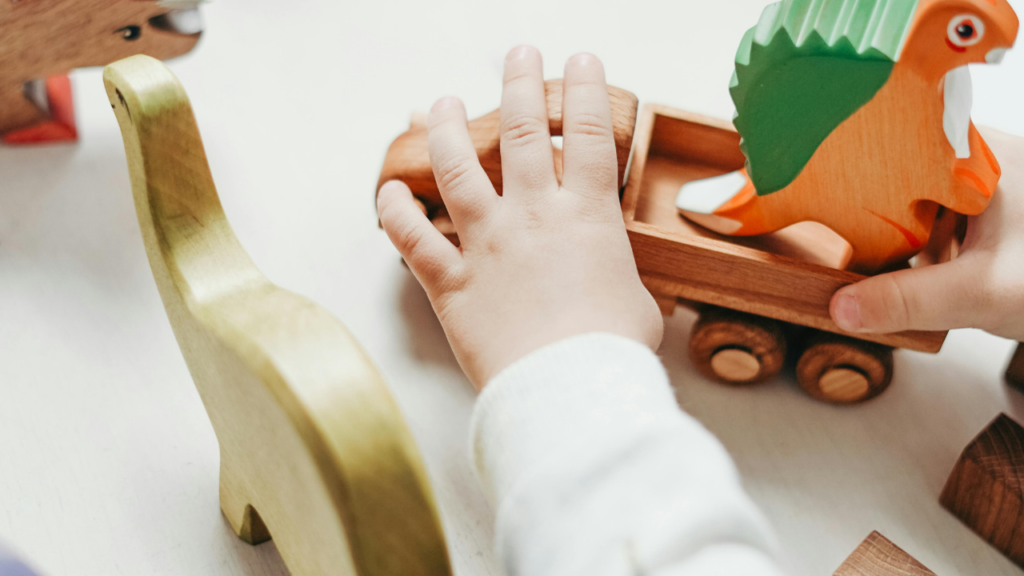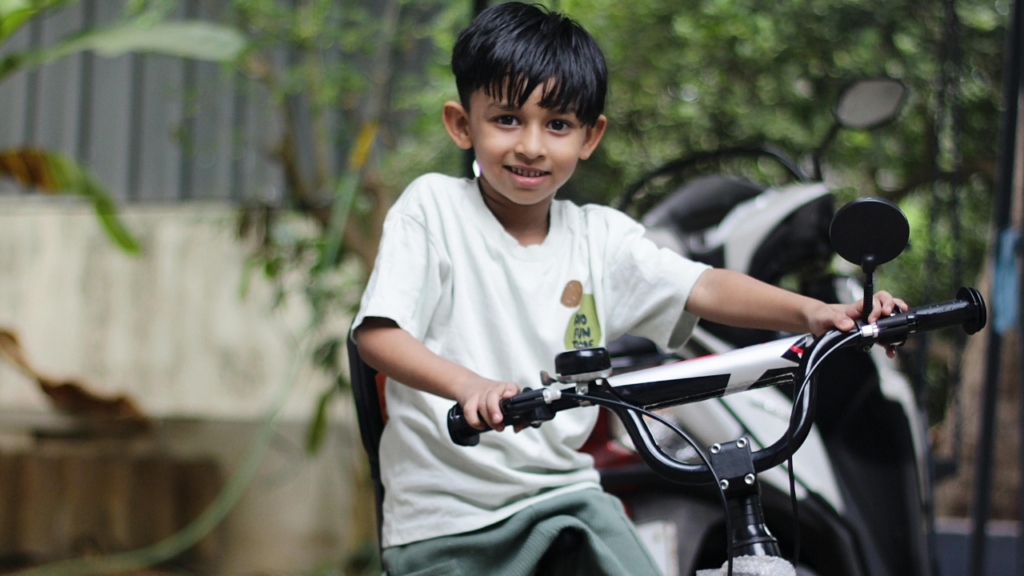Children with autism often face unique challenges when it comes to developing fine motor skills, such as handwriting, buttoning clothes, using utensils, or manipulating small objects. At Norfolk Autism Center, we understand that these skills are essential for fostering independence, self-confidence, and success in everyday life. We also know that parents—who witness these struggles first-hand—want practical solutions and compassionate support that helps their children thrive.
In this article, we’ll explore why fine motor skills are particularly important for children with autism, how these challenges manifest in daily life, and strategies for supporting skill development at home and through professional ABA therapy. Grounded in evidence-based principles, our approach at Norfolk Autism Center is child-led, compassionate, and designed to help each child grow in a way that respects their individual interests and needs.
Understanding Fine Motor Challenges in Children with Autism
Fine motor skills involve the coordination of the small muscles in our hands, wrists, and fingers—skills that allow us to manipulate and control objects with precision. From zipping up a jacket to writing letters of the alphabet, fine motor abilities are woven into almost every aspect of daily life.
For children on the autism spectrum, fine motor difficulties can manifest in different ways. They may experience:
- Weak Hand Strength: Children may struggle to grip a pencil firmly or hold a fork with enough control to eat independently.
- Poor Finger Dexterity: Tasks like buttoning clothes or tying shoelaces can be challenging due to difficulty coordinating finger movements.
- Limited Hand-Eye Coordination: Children might find tasks like threading beads or fitting puzzle pieces together overwhelming because their eyes and hands don’t always synchronize smoothly.
- Sensory Sensitivities: Certain textures or sensations can be uncomfortable or distressing, making children less willing to practice fine motor tasks like playing with modeling clay or using certain types of utensils.
- Motor Planning Difficulties: Planning and executing a sequence of movements—like opening a container, scooping out food, and closing it—can take extra time and support.
For families, these fine motor challenges can make daily routines—such as mealtimes, dressing, or completing schoolwork—feel stressful. It’s important to acknowledge these difficulties without judgement, recognizing that each child’s journey will be unique.

We understand that fine motor skills are a critical piece of your child’s developmental puzzle
The Impact on Children and Families
Difficulties with fine motor skills can affect a child’s confidence and willingness to engage in various activities. They may feel frustrated or anxious when they can’t complete tasks that their peers find easy. Over time, children may avoid these activities altogether, potentially missing out on valuable learning experiences.
In turn, parents often find themselves offering extra help or adapting tasks to compensate for their child’s motor skill gaps. While it’s natural to provide this support, doing so might increase parents’ workload and stress levels. Parents may also worry about their child’s ability to keep up academically, socially, and developmentally—particularly in environments where handwriting, art projects, or self-care skills play a big role.
At Norfolk Autism Center, we believe that addressing these challenges early can reduce stress for both children and their families. By working on fine motor skills in a supportive, motivating, and play-based environment, kids build their abilities gradually while developing a sense of accomplishment and independence.
Our Child-Led, Evidence-Based ABA Approach
Applied Behavior Analysis (ABA) therapy is an evidence-based approach recognized for helping children with autism develop new skills and reduce challenging behaviors. At Norfolk Autism Center, we’ve taken the proven principles of ABA and infused them with child-led, compassionate care. In practice, this means:
- Individualized Goals: We tailor goals to each child’s unique strengths, challenges, and interests. For instance, if a child loves drawing, we might focus on improving pencil grip and drawing tasks to enhance their fine motor skills in a context they already enjoy.
- Collaboration with Families: Parents and caregivers play an essential role in a child’s success. We partner with families to create consistent strategies that can be used both in the center and at home.
- Professional Partnerships: We often collaborate with occupational therapists to support a child’s motor planning and overall coordination. This team-based approach ensures that interventions are holistic and comprehensive.
By incorporating these practices into daily therapy sessions, we help children gradually build their fine motor abilities, confidence, and independence.
Target Areas for Fine Motor Development
Fine motor skills span a wide range of movements, tasks, and abilities. Below, we’ll break down a few key areas often targeted:
- Hand Strength: Strong hands and wrists provide the foundation for controlling writing utensils, picking up objects, and performing other manipulations.
- Finger Dexterity: This involves the fine-tuned control of individual fingers, crucial for tasks like buttoning clothes or twisting bottle caps.
- Hand-Eye Coordination: Children need to coordinate their visual input with their hand movements in tasks like lacing shoes, catching a ball, or aligning puzzle pieces.
- Bilateral Coordination: Many tasks, such as cutting with scissors, require using two hands in coordination. Strengthening this skill helps children perform more complex activities.
- Motor Planning and Sequencing: Fine motor tasks often involve planning out multiple steps. A child needs to think through how to line up puzzle pieces or sequence the steps of picking up a crayon, drawing, and then placing it back.
Practical Strategies for Developing Fine Motor Skills
Below are several strategies, which you can also implement at home. We encourage parents to experiment with these ideas and adapt them to their child’s interests and comfort level.
Hand Strength Activities
- Playdough or Putty: Encouraging your child to squeeze, roll, and shape playdough is a fun way to build grip strength. Hiding small objects in the dough for them to find adds an element of surprise and motivation.
- Finger Gymnastics: Games like “Itsy Bitsy Spider” or playing finger puppets can strengthen hand muscles while bringing social engagement and language practice into the mix.
- Using Tongs or Tweezers: Ask your child to pick up small items (like pompoms or small blocks) with tongs. This simulates the pinching motion required for many everyday tasks.
Finger Dexterity Exercises
- Bead Stringing: Threading beads onto a string or pipe cleaner requires careful coordination of fingers. You can incorporate patterns or colors to add a cognitive challenge as well.
- Sorting Buttons or Other Objects: Placing items of different sizes into small containers helps refine finger control. Encourage your child to sort by color or shape for an added educational component.
- Lacing Cards: Lacing around a pre-punched card or cardboard shape helps with accuracy and finger precision. Children often enjoy creating patterns or seeing a final picture emerge.
Hand-Eye Coordination Games
- Puzzles: Selecting simple puzzles that match your child’s interests—animals, favorite cartoon characters, shapes—makes the activity more appealing. Encourage them to find and align pieces with as much independence as possible.
- Target Toss: Throwing a small beanbag into a hoop or bucket can build coordination and motor planning. Start with larger targets and gradually shrink the target as your child improves.
- Finger Painting: Finger painting can help children practice aiming and making intentional marks while also exploring their creativity. For children with sensory sensitivities, consider using brushes or sponges if direct finger contact is uncomfortable.
Bilateral Coordination Activities
- Cutting with Scissors: Teach children to hold the paper with one hand and the scissors with the other. Practice cutting simple shapes or snipping along straight lines before moving to more complex shapes.
- Cooking and Baking: Activities like stirring batter, kneading dough, or rolling out cookie dough are great for strengthening both hands. Plus, they’re fun and tasty!
- Opening and Closing Containers: Encourage your child to open lids, zip sandwich bags, or snap Tupperware containers shut. This builds coordination and finger strength.
Motor Planning and Sequencing Exercises
- Simon Says: Games that require following multi-step directions help children think through each movement. For example, “Simon says: Touch your nose, then clap your hands.”
- Obstacle Courses: Setting up a simple obstacle course that requires crawling, picking up an object, and placing it in a container helps build not only gross motor skills but also planning, sequencing, and coordination.
- Visual Schedules: For more complex tasks (e.g., washing hands: turn on water, wet hands, apply soap, scrub, rinse, dry), a visual schedule can help children anticipate steps and plan their movements.
Creating Child-Friendly, Engaging Home Environments
Parents often ask how they can continue their child’s progress beyond structured therapy sessions. Here are some suggestions:
- Designate a Workspace: Set up a calm, clutter-free area with child-friendly tools (e.g., crayons, pencils, scissors with rounded tips). Having a dedicated space for fine motor activities can help children focus.
- Incorporate Interests: If your child loves dinosaurs, use dinosaur stickers or puzzles to make practicing fine motor tasks more enticing. If they enjoy music, try finger-tapping games that encourage rhythmic movement.
- Offer Choices: Give your child the option to choose between two activities that both target fine motor skills. This sense of autonomy can boost motivation and compliance.
- Keep It Short and Fun: Children with autism may have shorter attention spans, especially for tasks that feel challenging. Aim for short, frequent practice sessions that end on a positive note.
- Celebrate All Victories: Whether your child successfully places one puzzle piece or finishes the entire puzzle, be sure to offer praise, high-fives, or a small reward. This recognition builds self-esteem and a positive association with learning.
The Importance of Early Intervention
Fine motor skills underpin many facets of a child’s development and daily life. When these skills improve, children often experience benefits that go beyond improved dexterity, such as:
- Greater Independence: Being able to feed themselves, dress themselves, and complete art or writing projects without assistance bolsters a child’s sense of self-reliance.
- Enhanced Academic Success: Improved handwriting and increased willingness to engage in school tasks help children keep pace with classroom demands.
- Social Opportunities: When children feel more confident about their abilities, they’re more likely to participate in group activities like crafting or playing board games with peers.
- Boosted Self-Esteem: Mastering new tasks builds a child’s confidence, which can have a positive ripple effect on their emotional well-being.
Early intervention through ABA therapy and occupational therapy can help set children on the right course for ongoing success. At Norfolk Autism Center, we’re dedicated to providing targeted, evidence-based strategies that support children’s growth in ways that feel meaningful and rewarding to them.
Next Steps: Partnering with Norfolk Autism Center
If you’re a parent or caregiver in Southeast Virginia who’s concerned about your child’s fine motor development, Norfolk Autism Center is here to help. We offer:
- Comprehensive Assessments: We’ll evaluate your child’s specific motor abilities and needs to develop an individualized therapy plan.
- Collaborative Care: Working closely with families, school teams, and other professionals (such as occupational therapists), we ensure that every angle of your child’s support is covered.
- Evidence-Based ABA Therapy: Our approach combines the proven methods of ABA with compassion, creativity, and child-led strategies. We build on each child’s interests and strengths to help them make steady progress.
- Ongoing Support and Education: We empower parents and caregivers by providing practical tips, resources, and consistent communication. Our goal is to make sure progress continues beyond our center’s walls.
Above all, we treat each child as a unique individual, tailoring our approach to best meet their personality, needs, and goals. We understand that fine motor skills are a critical piece of your child’s developmental puzzle. By addressing these skills in a fun, positive, and supportive environment, we can help children build confidence, independence, and a sense of achievement in their everyday lives.
Call Us
We invite you to reach out to Norfolk Autism Center to learn more about how we can support your child’s fine motor development. Whether you’re just beginning to notice challenges or you’ve been working on these skills for a while, we’re here to offer guidance, resources, and professional expertise.
Contact us today at (757) 777-3229.




